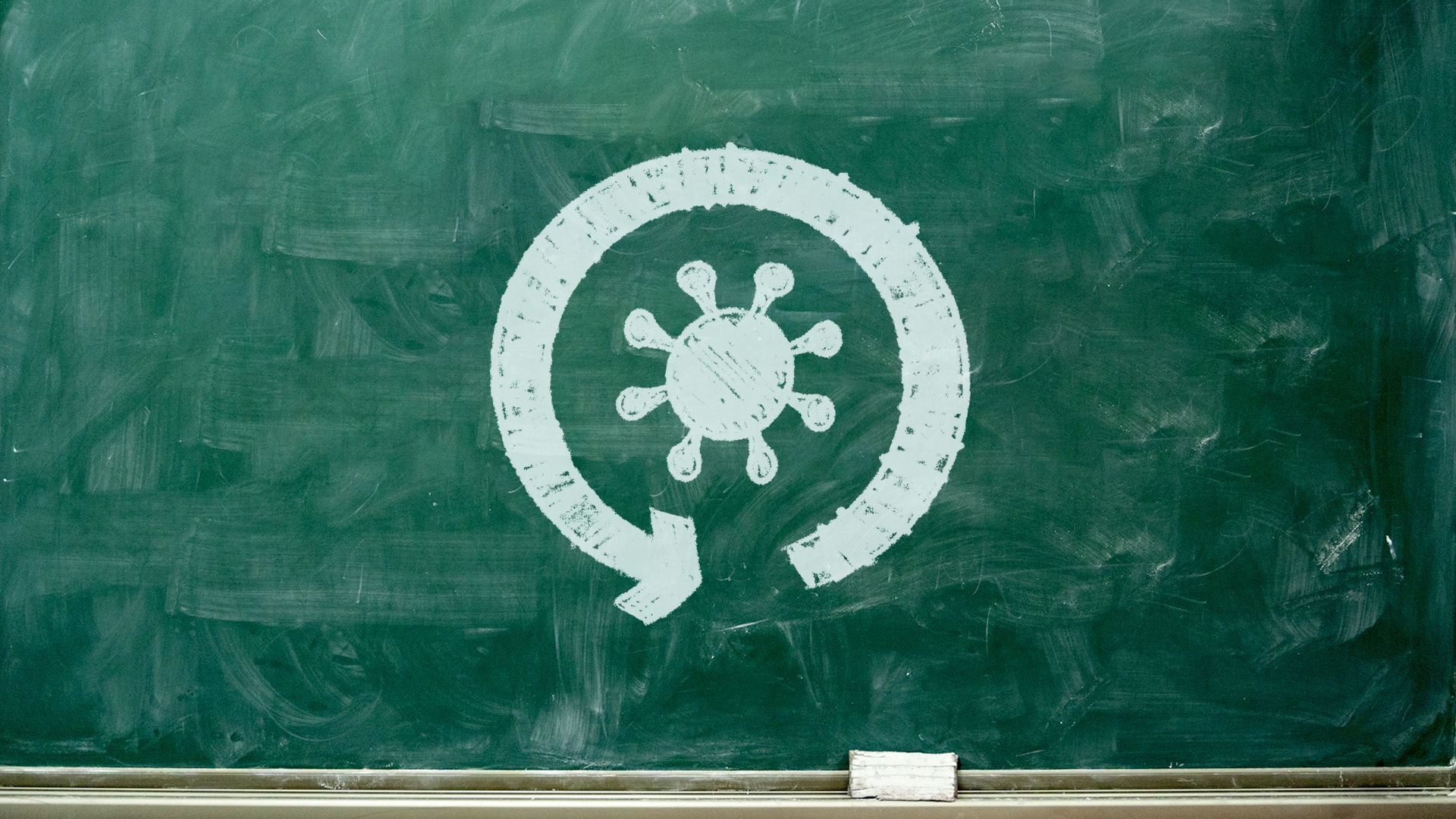
Illustration: Brendan Lynch/Axios
A late summer COVID surge is prompting some school districts to reinstate safety measures, as they try to protect student and teacher health without risking further disruptions to learning. Why it matters: Widespread school closings are a non-starter, and officials in red and blue states also insist broad mask mandates won't return. But, in a flashback to the dark days of the pandemic, some districts in consultation with local health officials have reinstated limited masking and other precautions as COVID cases and hospitalizations rise.
Driving the news: Districts in Kentucky and Texas have canceled classes after a surge of respiratory illnesses, including COVID, led to widespread absences.
- Philadelphia schools imposed a safety plan that calls for students who test positive to isolate for five days, then wear masks for another five days on return.
- And rising cases counts have prompted two Alabama school districts to bring back masking requirements.
Yes, but: Administrators and local health officials have much less available information about disease spread compared to during the height of the crisis since the Centers for Disease Control and Prevention scaled back how it reports COVID data and at-home testing has fallen off.
- With half of Americans believing the pandemic is over and memories of missed school years still fresh, any sweeping measures could face blowback.
- The Biden administration is showcasing efforts to reverse declining student performance since the pandemic amid continued criticism from Republicans that the administration and its allies kept schools closed too long, Reuters reported.
But rebounding case counts and the prospect of another "tripledemic" of respiratory illness are causing concern and prompting districts to walk a tightrope as they reevaluate protocols.
- Talladega city school officials took pains in a Facebook post to stress their policy wasn't a mask mandate, saying "masks are encouraged but not required."
- Los Angeles schools, which had some of the strictest COVID measures in the country, are maintaining an optional masking policy, saying kids can come to school with mild illness, as long as they don't have a fever, to combat high absence rates, the L.A. Times reports.
What they're saying: There isn't consensus among public health experts around how schools should deal with COVID this fall.
- Some said it's time to start treating COVID like any other respiratory illness in schools, while saving greater caution for high-risk settings.
- "Maybe kids can still go to school with symptoms, as long as they don't have fevers or as long as they don't have severe coughing — but they should not be visiting their elderly grandparents who live in a nursing home," said Leana Wen, a public health professor at George Washington University who's advocated since the spring of 2022 for most people to return to pre-pandemic life.
- Others disagreed. If your kid is feeling sick, they shouldn't go to in-person classes, said Georges Benjamin, executive director of the American Public Health Association.
- "You're not just protecting that individual child, but that child has classmates who may have chronic diseases," he said. "The problem with treating it like everything else is we should be telling parents — and we do — if your kid has the flu, they should stay home, too."
- Benjamin said any decisions about reinstating mask mandates should be made "on a case-by-case basis."
Between the lines: The late-summer surge of illness comes after a stretch when most Americans put the pandemic behind them. And acceptance of public health measures is often tied to perceptions of personal risk.
- The percentage of people who wear a mask some or all of the time has dropped by half over the past six months, to 15%, according to the latest Axios-Ipsos American Health Index.
- 69% say contracting COVID poses small or no risk to their health and well-being. And booster uptake has been low, with about 17% of the population receiving last year's updated COVID shot, per the CDC.
The bottom line: While people now think their risk of contracting COVID is about on par with getting a mosquito bite, people still registered some concern about the current uptick when asked about it. And ultimately, they want to make sure their kids are safe.
Clarification: This story has been updated with information on when Leana Wen advocated for a return to pre-pandemic life.